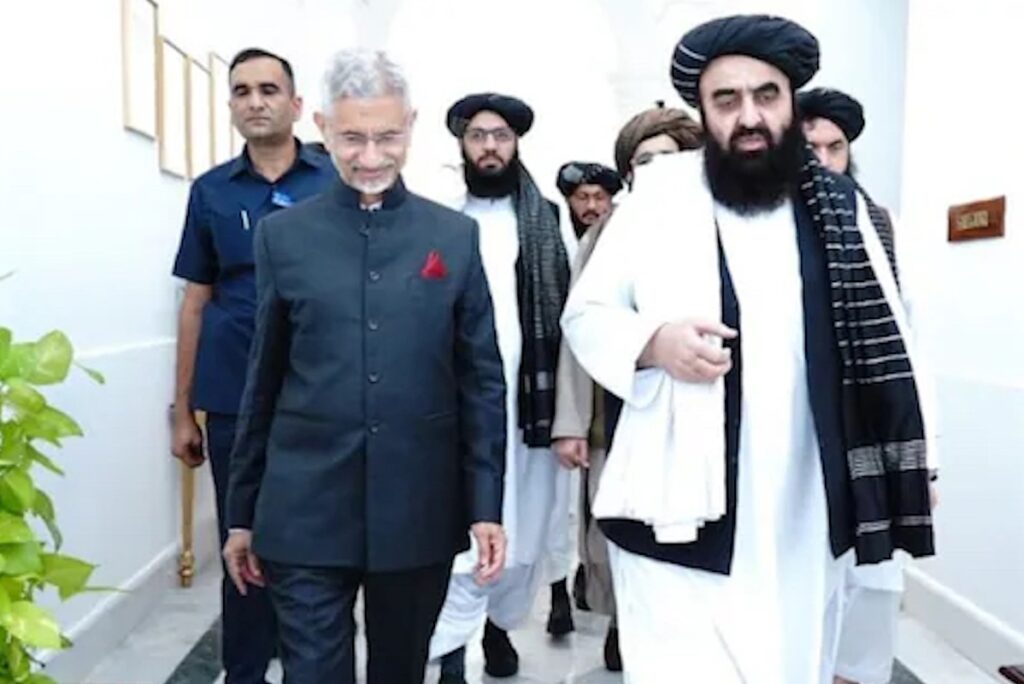
India’s recent decision to engage with Afghanistan’s Taliban regime, despite not formally recognizing it, has sent ripples through the already volatile South Asian geopolitical landscape. To many observers, this move appears to be a calculated act of realpolitik, intended as a strategic counterbalance to Pakistan’s entrenched influence in Kabul. However, beneath the surface of this diplomatic maneuver lies a more disconcerting reality: an ideological alignment between India’s ruling right-wing and Afghanistan’s Islamist rulers, a convergence aptly described as “unity in obscurantism.”
At first glance, the Rashtriya Swayamsevak Sangh (RSS) and the Taliban appear to be ideological opposites—one rooted in militant Hindu nationalism, the other in rigid Islamic theocracy. Yet, when the religious veneer is stripped away, a shared disdain for modernity, pluralism, and women’s autonomy emerges.
Ideological Parallels and Gender Dynamics
Both the RSS and the Taliban idealize a mythic past where faith was pure, authority unquestioned, and gender roles rigidly defined. Progress, particularly women’s emancipation, is seen as a threat to social order rather than a marker of civilization. The Taliban’s exclusion of women from public life, education, and governance finds an unsettling echo in the RSS’s patriarchal worldview, which seeks to confine women within traditional Hindu roles under the guise of cultural preservation.
While the Taliban enforces this through fear and violence, the RSS employs social engineering and political power. The outcome, however, is strikingly similar: women’s bodies become ideological battlegrounds used to assert religious identity and moral supremacy.
Political Implications in India
The RSS’s influence through the Bharatiya Janata Party (BJP) has gradually redefined India’s secular democracy into something resembling a Hindu rashtra—a nation built around majoritarian faith rather than constitutional equality. Textbooks have been rewritten to glorify ancient Hindu empires, interfaith marriages are vilified as “love jihad,” and dissenters, journalists, and activists face increasing hostility, often branded as anti-national for questioning the state’s moral agenda.
Meanwhile, the Taliban governs Afghanistan with its own brand of puritanical absolutism, dictating how people dress, what they learn, and how they pray, effectively erasing decades of progress in women’s rights and education.
Regional Dynamics and Extremist Politics
The announcement comes as Prime Minister Narendra Modi’s decision to host the Taliban’s foreign minister in New Delhi, albeit unofficially, signals a pragmatic but morally fraught calculation. This move risks legitimizing one of the world’s most repressive governments in the name of strategic necessity. In the pursuit of regional influence, India may find itself mirroring the very intolerance it claims to oppose.
This development follows a broader regional trend. In Pakistan, the far-right Tehreek-e-Labbaik Pakistan (TLP) exploits blasphemy laws and street power to challenge the state. Taliban spokesperson Zabihullah Mujahid’s attempt to sympathize with the TLP amid its violent protests illustrates how extremism transcends borders. The Taliban’s interference in Pakistan’s internal affairs, despite the TLP’s limited power, further complicates the geopolitical landscape.
Shared Politics of Fear
What unites the RSS, Taliban, and TLP is not theology but a shared politics of fear. Each movement thrives on grievance—the belief that its faith and culture are under siege. Each promises a return to purity by purging society of dissent and difference. Religion is wielded not as a means of moral guidance but as a tool for domination.
The danger of this “unity in obscurantism” lies in its normalization. When democracies like India begin to compromise with fundamentalism for strategic advantage, they risk eroding the very principles that once defined them.
South Asia’s greatest challenge, then, is not the clash between religions but the rise of religio-political movements that hollow out democracy from within. As these forces gain legitimacy, they erode freedoms in the name of faith, turning citizens into subjects and belief into a weapon.
If India continues down this path—engaging the Taliban abroad while empowering the RSS at home—it may win tactical victories but suffer a deeper moral defeat. The true danger to South Asia is not terrorism across borders, but the quiet transformation of its nations into sanctuaries of sanctimony, where faith is no longer a matter of devotion but an instrument of power.
In the end, obscurantism wears many faces, and when democracies embrace it, the light that once guided them begins to dim.






